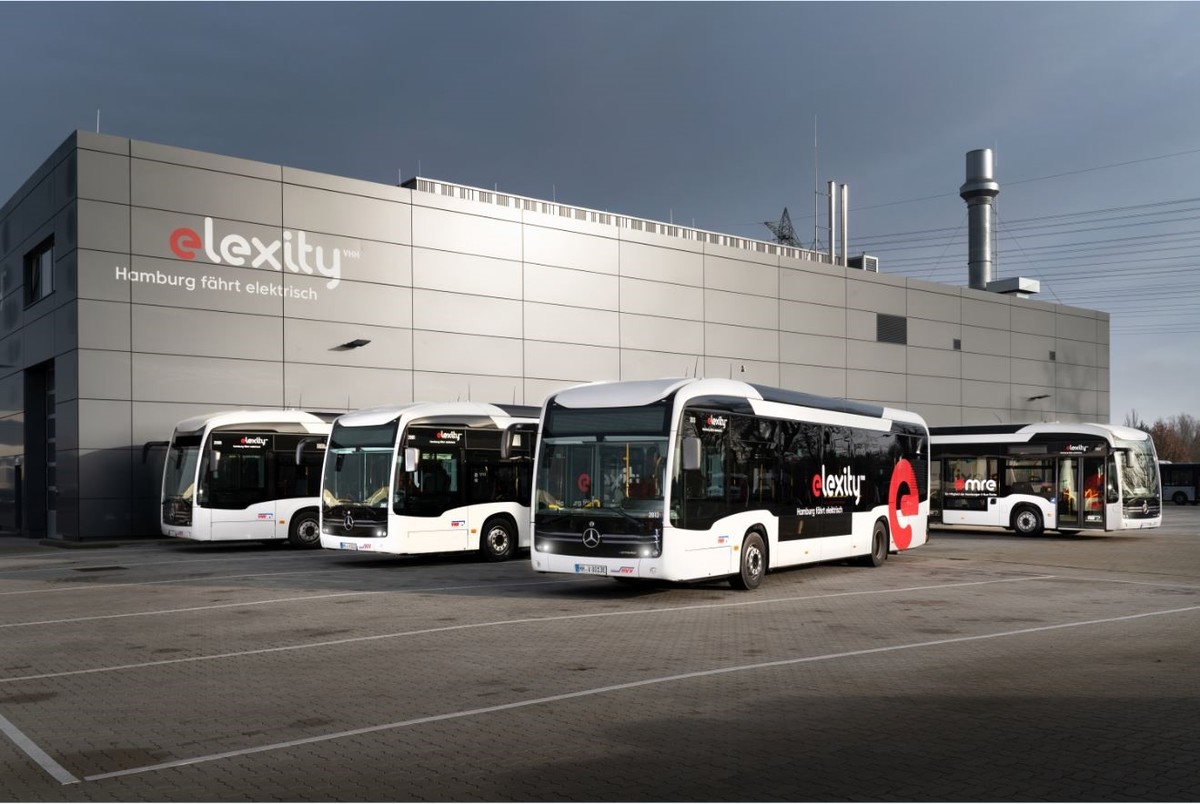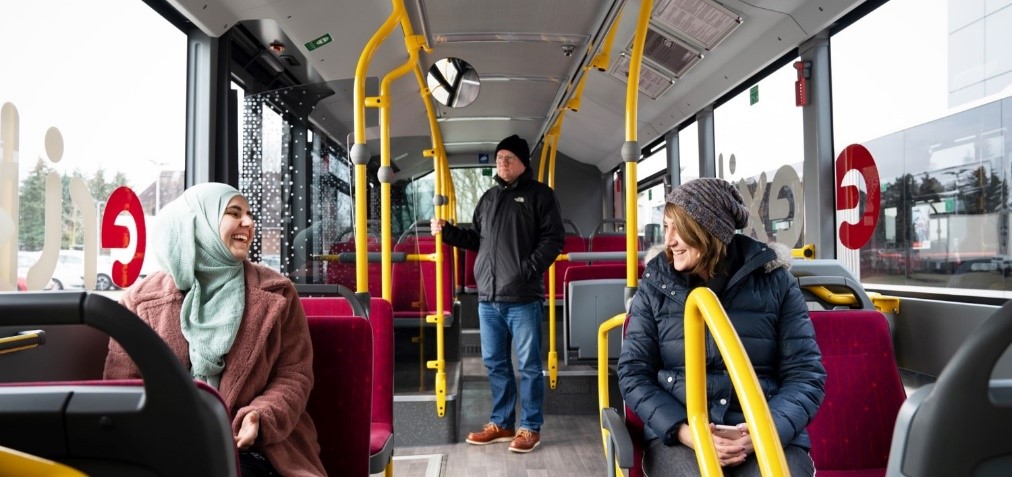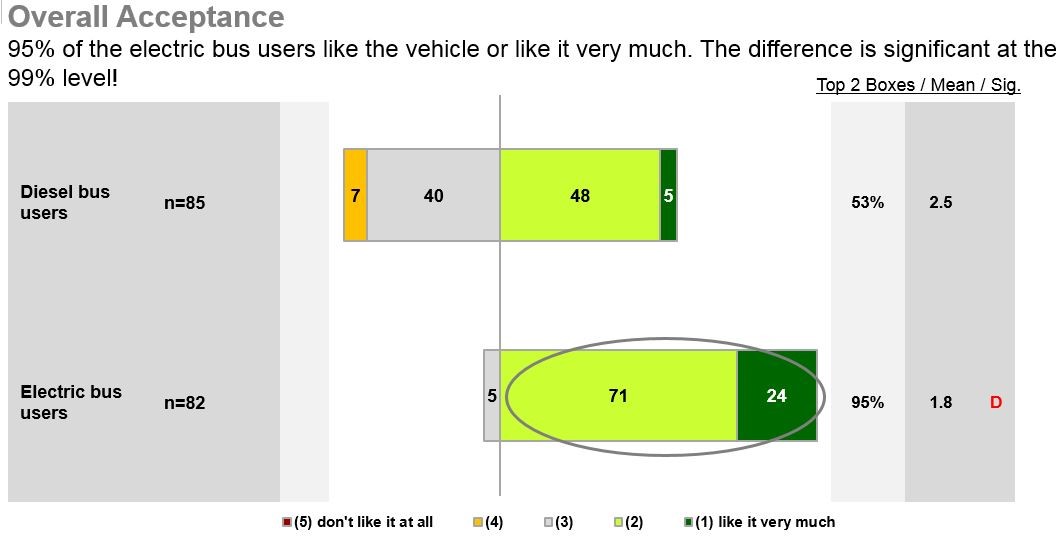Sustainability and Practicability of Electric Buses – Best Practice From Hamburg

(c) Verkehrsbetriebe Hamburg-Holstein (VHH)
How do passengers perceive e-mobility in public transport, both in terms of sustainability and practicability? Which aspects are important to them in daily life? And how do they evaluate the e-buses compared to conventional diesel buses? In the light of the COVID-19 impacts on passengers using public transport, finding answers to these questions became even more important: Public transport systems lost a large share of passengers to car, bikes and other individual modes of transport, and transport providers need to find ways to win back passengers.
To answer these questions, BSR electric’s use case 3 team commissioned a passenger survey in Hamburg. Originally foreseen to take place mid-March, the German lock-down rendered implementation impossible. Just before the start of the summer holidays from June 22nd to June 26th, a total of 167 passengers were interviewed in bus lines operated by Verkehrsbetriebe Hamburg-Holstein (VHH), the associated BSR electric partner in Hamburg. To identify significant differences in perceptions, respondents were interviewed in both e-buses as well as in conventional buses.

(c) Verkehrsbetriebe Hamburg-Holstein (VHH)
Findings clearly reveal that, from the passengers´ view, the most important aspects for public transport are punctuality and frequency of services, with 92 % and 80 % respectively regarding these aspects as very important. All other aspects surveyed were less important.
However, compared to conventional buses, e-buses do significantly better in almost all evaluation categories (e.g. overall impression, environmental impact and ride comfort). 95% of the interviewed passengers were very satisfied with riding the e-bus, compared to 52% for the conventional e-buses. Passengers especially value the quietness of the e-buses and steadiness during the tours, whereas the conventional bus rides were perceived as rather loud and bumpy.
Another interesting aspect concerns the awareness of passengers driving technology in general: The passengers seem to be well informed, most of them (around 70%) are well aware of the technology of the vehicle they are driving in and can correctly differentiate between a diesel drive and an electric drive. While a majority thinks that diesel buses have a higher range before having to refuel or recharge, most passengers do not consider e-buses as less reliable than diesel buses.
It may be concluded that the vast majority of public transport users is in favor of electrification of public transport and appreciates the environmental benefits. The survey results suggest that VHH is on the right path with their transition towards an electrified, emission-free bus fleet. Providing attractive, comfortable and economic means of public bus transport can create pleasant travelling experiences and may be regarded as key factor to literally get the passengers back “on board” after the Covid-19 heavily affected the entire public transport sector.

(c) F&P Marketingforschung GmbH


